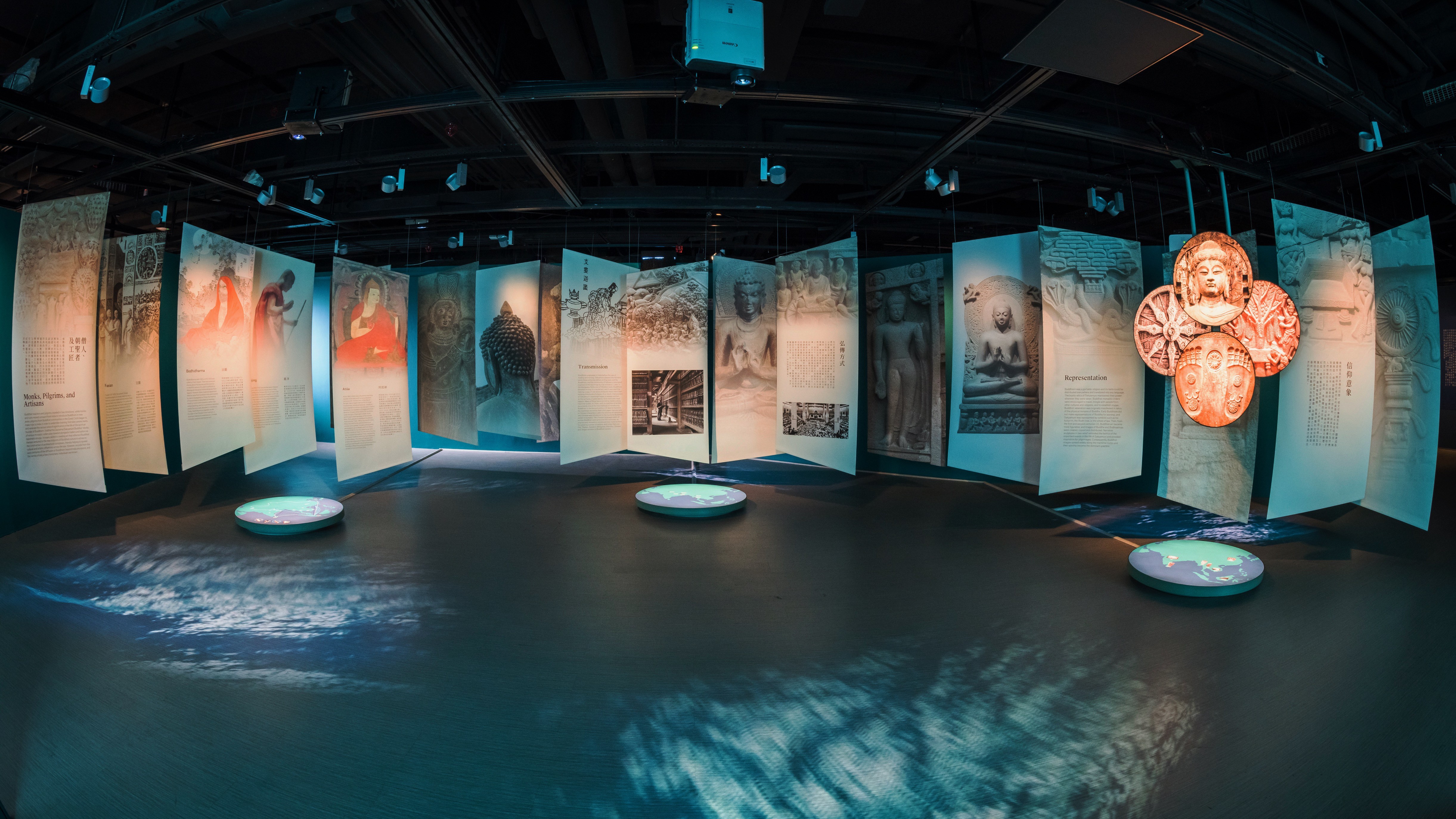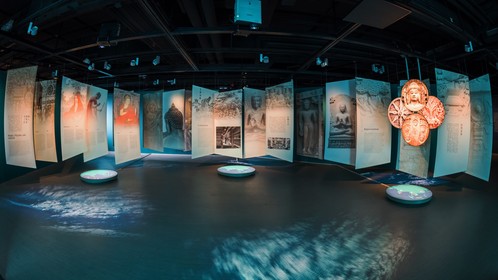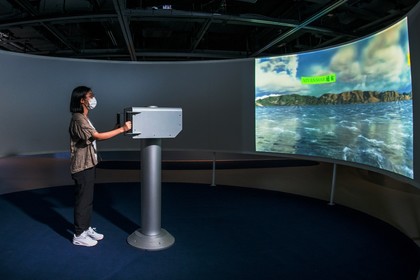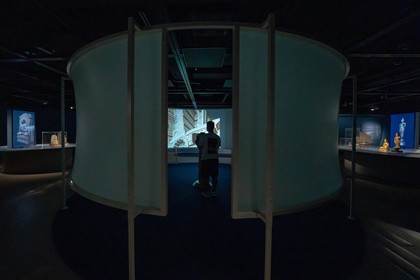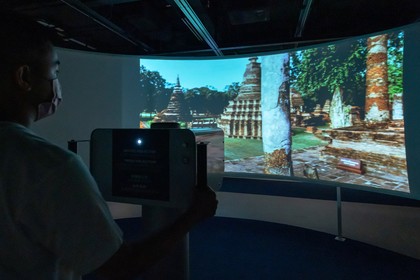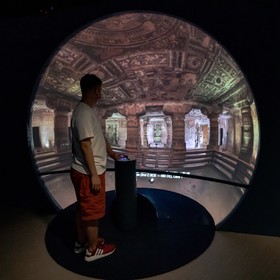The Atlas of Maritime Buddhism is an archive of historic evidence for the spread of Buddhism from India to Korea through the seaports of South East Asia from 2 nd century BC-12 th century AD. It is one of 54 cultural atlases developed and maintained under the Electronic Cultural Atlas Initiative (ECAI) administered by University of California, Berkeley (UCB). With contributions from researchers around the world, it includes geospatial coordinates, gazetteers for hundreds of sites, images of archaeological sites and artifacts, religious and geopolitical empires and zones of influence, inscriptions and transcriptions of Sanskrit texts, historic maps, accounts by Buddhist monks and ambassadors, records of trade, hydrographic data, monsoon records, and shipwreck datasets.
Given its tremendous heterogeneity the Atlas requires a new form of visual, cartographic and time-space narrative strategy that is currently outside traditional forms of interpretation. This is what the The Digital Atlas of Maritime Buddhism will provide. The aim of the proposed research is to develop a pioneering narrative-driven deep mapping schema for interactively exploring the narrative patterns, historical processes and cultural phenomena in the Atlas. This schema will afford pathways for multiple users to undertake different journeys through this rich and fascinating material through the experimental development and application of the world's first deep mapping data browser—a navigational interface to be developed in a 360-degree 3D (omnidirectional) virtual environment.
The research is being conducted by Jeffrey Shaw in collaboration with UNSW, Australia, University of California, Berkeley, Fudan University, and École polytechnique fédérale de Lausanne.
